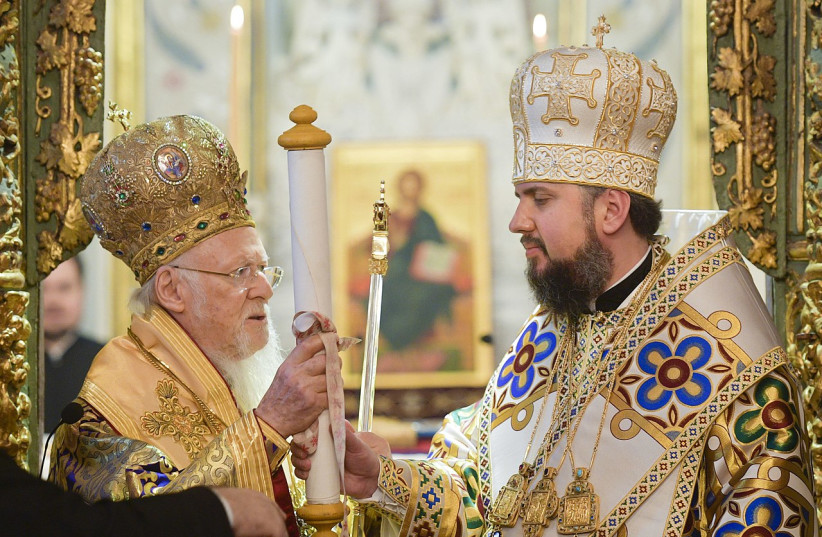The head of Russian-controlled Crimea Sergei Aksyonov instructed lawmakers to draft a law banning the Ukrainian Orthodox Church in the Black Sea peninsula, Russian state news agency TASS reported Wednesday, citing Aksyonov's official Telegram channel.
The banning of the Ukrainian Orthodox Church reflects the ongoing tensions between it and the Russian Orthodox Church.
Until 2018, the Ukrainian Orthodox Church was officially part of the Russian Orthodox Church. Indeed, as noted by many surveys, a large majority of Ukrainians are Orthodox Christians.
However, the relationship between Ukraine's and Russia's Orthodox churches changed in 2019 when Bartholomew I of Constantinople, the current ecumenical patriarch and essentially the head of the Orthodox Church, recognized the independence of the Ukraine Orthodox Church.
This does not mean the church is entirely independent and unconnected to Orthodoxy, as that is not how the church works. Rather, it would essentially be equal to the many other Orthodox churches.

The Orthodox Church functions as what is essentially a group of churches where the archbishops do not technically report to anyone higher – a type of church known as autocephaly. The ecumenical patriarch is considered "primus inter pares," meaning "first among equals," but he has no real authority over the other churches.
The problem lies in how the Russian Orthodox Church claims authority over Ukraine as a whole, and as such, they have been greatly opposed to the establishment and subsequent recognition of Ukraine's Orthodox Church.
The head of the Ukrainian Orthodox Church, Metropolitan Epiphanius I of Ukraine, has been vocal in his opposition to the Russian invasion, saying that "the spirit of the anti-Christ operates in the leader of Russia" and said that killing Russian invaders was not a sin.
By contrast, Russian Orthodox Church Patriarch Kirill has called for unity in the Orthodox church, but specifically "our united Orthodox Church represented in Ukraine by the Ukrainian Orthodox Church headed by His Beatitude Onuphry," referring to the head of the Moscow Patriarchate-controlled Ukrainian Orthodox Church.
<br>Property nationalization
In addition to his statements regarding the church, Aksyonov also said that he ordered lawmakers to draft a law that would nationalize all property in Crimea belonging to Ukrainian oligarchs and politicians and statesmen who "openly support Nazism and the Kyiv regime," TASS reported.
"Working out the lists will be finished this week, and then the legislative act will be adopted by the parliament. Accordingly, decisions on nationalization will be made."
